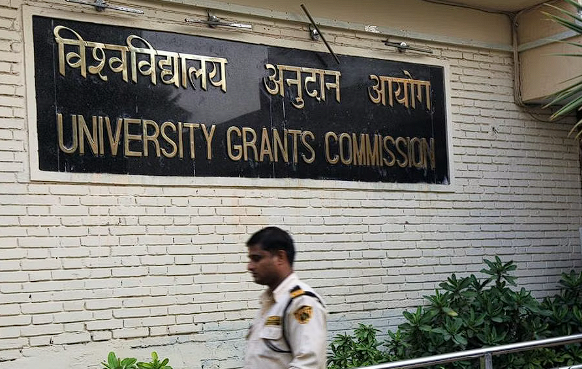UGC Revises Vice-Chancellor Selection Process
The University Grants Commission (UGC) has introduced new regulations for the appointment and promotion of teachers in higher education. Released on January 6, 2025, by Union Education Minister Dharmendra Pradhan, these draft regulations clarify the selection process for Vice-Chancellors. The guidelines empower Chancellors or Visitors to form a three-member search-cum-selection committee. This committee will be responsible for appointing Vice-Chancellors. Institutions failing to implement these guidelines may face consequences, including exclusion from UGC schemes and degree programmes. Stakeholders have 30 days to provide feedback on the draft.
Key Changes in Appointment Process
The new regulations shift the power to appoint search committees from state governments to Chancellors. This change aims to eliminate previous conflicts, particularly in states like Tamil Nadu, West Bengal, and Kerala. The draft mandates that the selection process for Vice-Chancellors must be advertised in all-India newspapers. Applications can be accepted through nominations or talent searches conducted by the committee.
Composition of the Search Committee
The search-cum-selection committee will consist of three members. A nominee of the Chancellor will serve as the Chairperson. Additionally, a nominee from the UGC Chairman and another from the university’s apex body will complete the committee. Previously, state cabinets recommended nominees, but recent practices have led to conflicts as Governors began nominating their choices.
Flexibility in Faculty Appointments
The UGC’s draft regulations aim to enhance flexibility in faculty appointments. Candidates can qualify based on their performance in the UGC National Eligibility Test, regardless of their undergraduate or postgraduate fields. This approach allows candidates to transition across disciplines, encouraging a multi-disciplinary environment in universities.
Emphasis on Indian Languages
The guidelines encourage the use of Indian languages in academic publishing. They highlight the importance of promoting local languages in educational content. This initiative aims to strengthen cultural identity and inclusivity within higher education.
Relaxation of Eligibility Criteria
The regulations provide a 5% relaxation in marks for specific categories, including Scheduled Castes, Scheduled Tribes, Other Backward Classes, Economically Weaker Sections, and Persons with Disabilities. This adjustment aims to promote diversity and equal opportunity in higher education.
- UGC – University Grants Commission, regulatory body in India.
- NEP 2020 – National Education Policy aimed at transforming Indian education.
- SC/ST – Scheduled Castes and Scheduled Tribes, historically disadvantaged groups in India.
- OBC – Other Backward Classes, a classification for socially and educationally disadvantaged communities.
- EWS – Economically Weaker Sections, a classification for individuals from low-income backgrounds.
Notable Contributions for Faculty Selection
Candidates applying for assistant professor positions can demonstrate notable contributions through various avenues. Innovative teaching methods, research projects, and consultancy work will be recognised. Contributions in Indian languages will also be considered . These measures aim to elevate academic standards and encourage diverse teaching practices in higher education.
Month: Current Affairs - January, 2025
Category: Legal & Constitution Current Affairs






